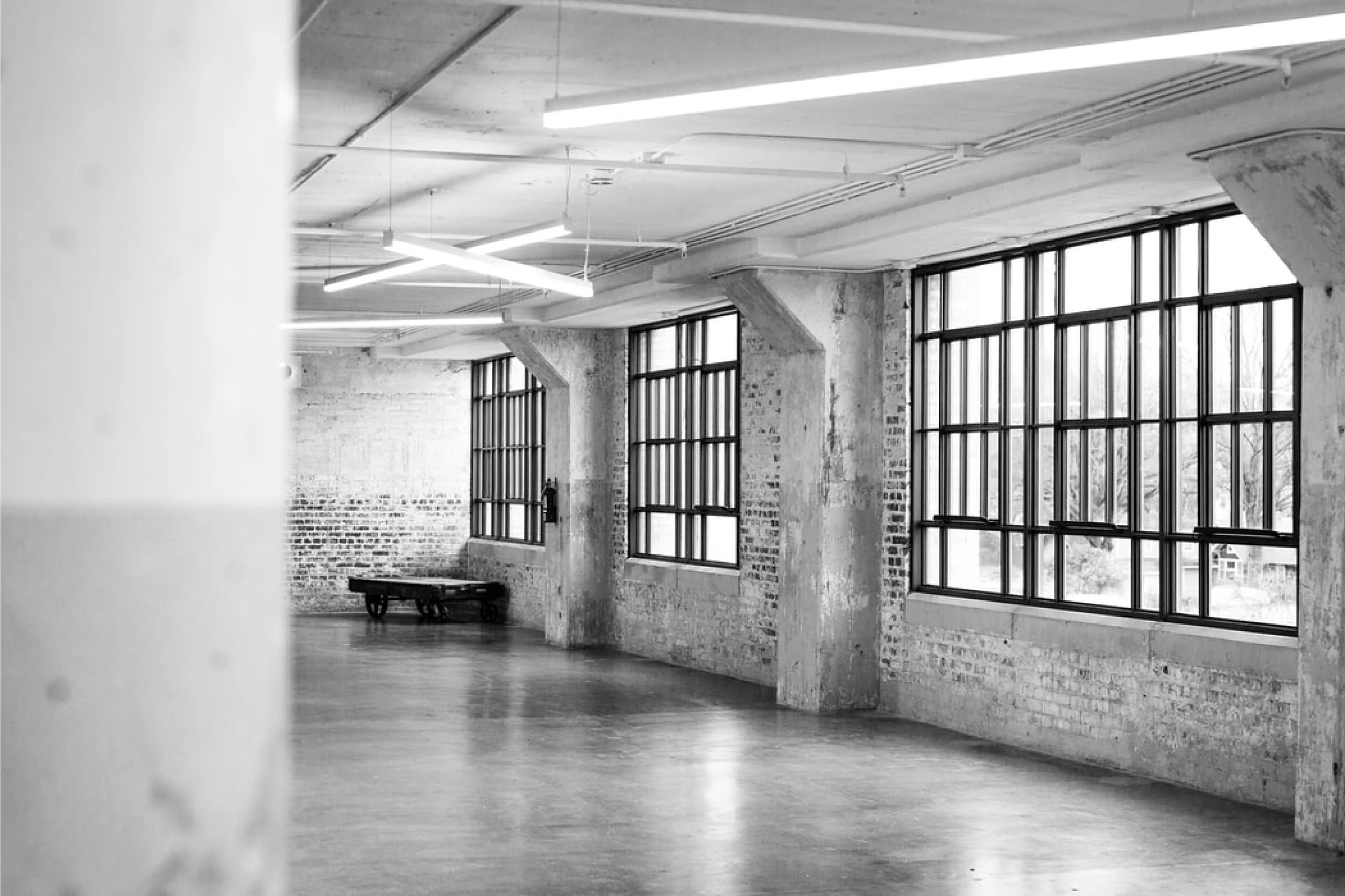Typical Commercial Lease Terms That Everyone Should Know
During your search for commercial space, I’m sure that you’ve come across a lot of commercial real estate jargon - but you need not worry! You don’t have to know everything.
This blog will cover the basics of commercial leases including common lease structures, important lease clauses, and the most common delivery conditions of commercial leases.
By the end of this reading, you won’t know everything about commercial leases, but you’ll know enough to be dangerous.
Lease Structures
Commercial leases can be structured in a variety of ways, depending on the type of property, type of business, and number of tenants.
Here are a few of the most common structures.
Triple Net (NNN)
A triple net lease, or a net lease, is one of the most common lease structures. It requires the tenant to pay base rent along with the three nets which are:
Property taxes
Building insurance
Common area maintenance (CAM)
With triple net leases, the tenant incurs all expenses related to the property. But the landlord is not off the hook! They are still responsible for maintaining the structural components (structural walls, foundation, and roof) of the building.
The only time the landlord is completely free of responsibilities is when the tenant has an absolute triple net lease – the tenant is responsible for the structural components of the building too.
To calculate rent for a NNN lease, you take the estimated annual expenses and add that number to the price per square foot multiplied by the rentable square footage of the space.
Full-Service Gross (FSG)
A full-service gross lease, or full-service lease, requires the tenant to pay a base rent while the landlord incurs all expenses related to the property.
Sounds great, doesn’t it? It can be great considering that the tenant knows exactly what they’re paying each month - but it can also be a double-edged sword.
The property owner will probably significantly increase the base rent of the space with a full-service gross lease as a means of risk mitigation for the owner - they want to be as monetarily insulated as possible from unexpected expenses.
To calculate the rent for a FSG lease, you simply multiply the price per square foot by the square footage of the space.
Modified Gross (MG)
A modified gross lease requires the tenant to pay a base rent along with only some of the operating expenses.
For example, a group wants to open an art gallery in a space that you have for lease. You know that the electric bill will be significantly high, so create a modified gross lease where the group pays monthly rent along with the electric bill.
Calculating the rent for a MG lease is almost the same calculation for finding full-service gross rent; you multiply the price per square foot by the square footage of the space and add this number to the amount of the expense(s) that you will incur in addition to rent.
Lease Clauses
There are a myriad of clauses in a commercial lease. While it is important that you have your lawyer review your lease, you should not be totally green to commercial leases.
Here are a few important clauses to keep in mind.
Sublease Clause
Subleasing is where a tenant leases unused space in their lease agreement to another tenant. The tenant’s lease agreement with the subtenant is independent of the lease agreement between the tenant and the landlord.
Often referred to as the right to sublet clause, the sublease clause states that the tenant does not have permission to lease a portion of space in their lease agreement to another tenant unless consent is given by the landlord.
Have your attorney review your lease - some landlords will charge a sublease fee!
This clause is important because any additional space that you do not use, but is included in your lease could provide you with additional income.
Exclusive Right
The exclusive right clause or exclusivity clause, often found in retail leases but can be seen in any industry, gives the tenant the right to be the only business that sells a certain product or provides a specific service.
For example, if you decide to open a nail salon in a prominent strip mall, you wouldn’t want there to be another nail salon.
Why?
Because they are a competing business and have the potential to take some of your customers. Go for that exclusive.
Rent Escalation
When leasing a space, your rent can increase on a yearly basis or during any renewal options – this is what the rent escalation clause covers.
The rent escalation clause explains how much of an increase in rent a tenant will be subject to. For example, a landlord my state that there will be a 2% annual increase in rent. Or it may be that the rent increases by 5% every two years – every lease is different.
The rent escalation clause is one of the most important clauses because in the long run, those annual 2% increases can greatly affect your overall costs of tenancy.
Delivery Conditions
Commercial spaces can be delivered in a variety of conditions.
Sometimes you may lease a space that is basically move-in ready, whereas you can also have a space that its nothing more than the skeleton of the building.
Let’s dive into a few of the most common delivery conditions for commercial leases.
Vanilla Shell (Warm Shell)
A vanilla shell lease, or whitebox condition, can be one of the sweetest deals you get. Build out costs for vanilla leases are what makes them so desirable – you spend the least amount, if any, during the build-out of a vanilla shell lease compared to any other delivery condition.
Your costs for build-out mostly reflect the cost of your tenant-specific amenities.
Here are the amenities you can expect in a vanilla shell lease:
Finished ceiling or drop ceiling
Finished restrooms
HVAC & ductwork
Lighting
Elevators
But this comes with a cost. You should expect a higher base rent since the property is being delivered in almost move-in ready condition.
Cold Dark Shell
Cold dark shells are exactly what they sound like. You can expect the spaces to be down to the studs of the building – it’s essentially the skeleton of a building.
A cold dark shell lease DOES NOT contain the following amenities:
HVAC
Electrical
Plumbing
Elevators
But why would you want a cold dark shell lease? Aren’t the build-out costs going to be high?
Yes, cold dark shell build-out costs are higher than any other delivery conditions, but there is an incentive; the landlord generally offers a lower rent and a higher tenant improvement allowance (TIA) since the build-out costs will be high for the tenant.
Second-Generation
Second-generation spaces are the hand-me-downs of commercial real estate. What makes second-generation leases attractive is that it could require little to no build-out costs, depending on your business and the previous tenant.
For example, if you’re looking to open a restaurant, a second-generation space where the previous tenant was a restaurant may be perfect for you. Why? Because the space is likely to be outfitted with the proper ventilation system for your kitchen. You may find that the lease includes commercial stoves and refrigerators.
It’s not uncommon for the new tenant of a second-generation space to slap paint on the walls, lay new flooring, and open for business.
A downside of a second-generation lease is that it’s is going to reflect the previous tenant. Also, If the space was previously leased to a long-term tenant, you need to make sure the space is up to code!
Conclusion
By now, you know the important parts of commercial leases.
But there is still a ton to learn, especially if you’re an entrepreneur looking to find a commercial space for your business.
For a more detailed overview of commercial leases, give Tyler’s Open For Business: The Insider’s Guide to Leasing Commercial Real Estate a read! It will guide you through every step of obtaining a commercial lease.
Ben Dotye's passion and eagerness to learn about commercial real estate lead him to join the team as our brokerage and acquisition intern. He has proven himself valuable by assisting our brokers, being involved in renovation projects, and much more! His goal as our intern is to learn as much as possible so that he can soon be a part of Music City's growth.
A current Business student at Rhodes College, Ben is expected to graduate in 2022. Upon graduation, he plans to dive into commercial real estate!














Commercial real estate investing can be a pretty rewarding venture, offering the potential for substantial returns and long-term wealth creation. From office buildings and retail spaces to apartment complexes and industrial warehouses, the commercial real estate market presents diverse opportunities for investors willing to navigate its complexities.
However, like any investment, commercial real estate comes with its own set of risks. For new investors, understanding and managing these risks is crucial to achieving success and avoiding costly mistakes. The world of commercial real estate can be unforgiving to the unprepared, making risk management an essential skill for anyone looking to enter this market.